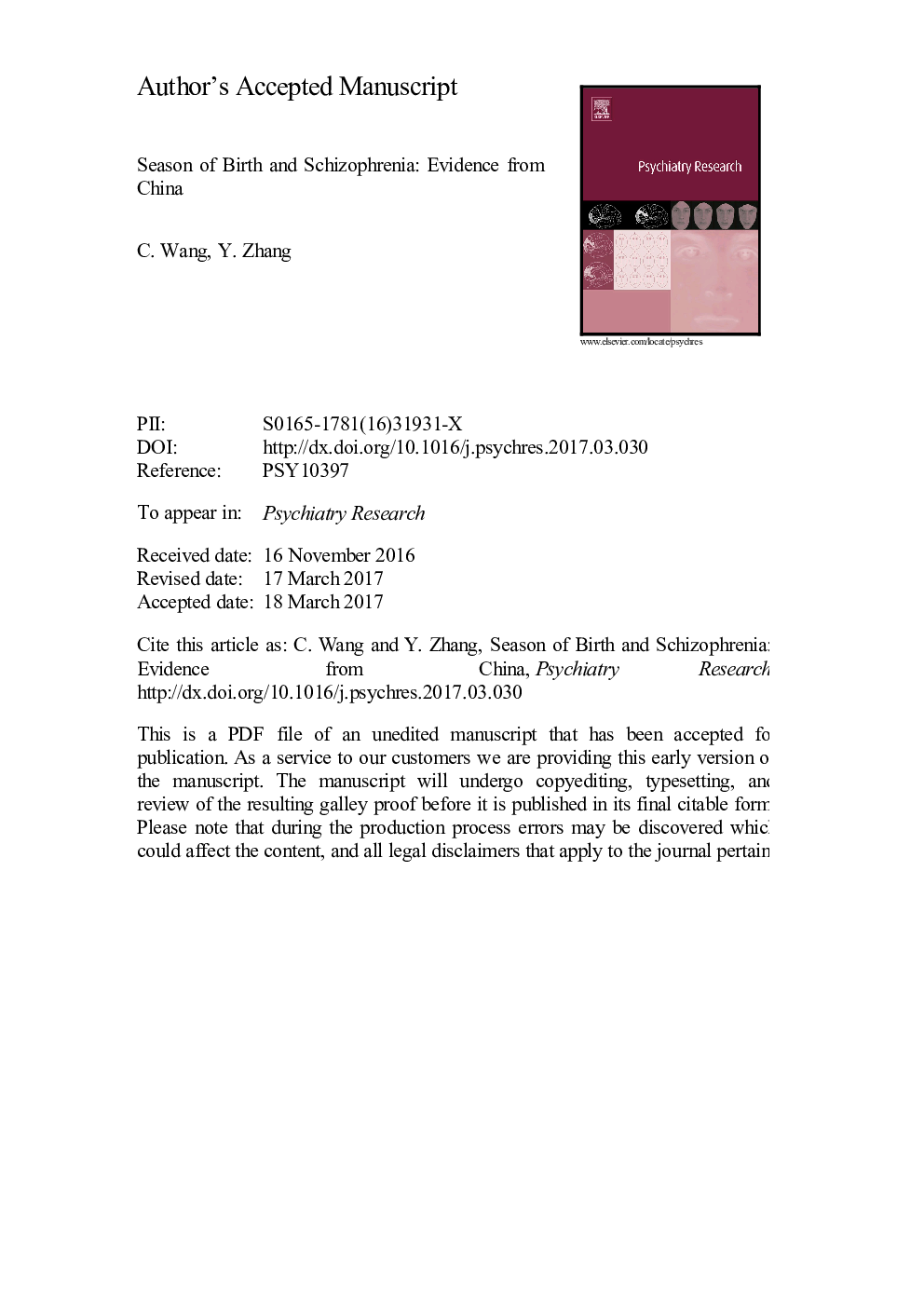| Article ID | Journal | Published Year | Pages | File Type |
|---|---|---|---|---|
| 4933293 | Psychiatry Research | 2017 | 31 Pages |
Abstract
Controversies exist whether season of birth is associated with schizophrenia development later in life, and evidence has mainly come from studies done in developed countries. This study examines the association between season of birth and risk for schizophrenia in China, with special attention to geographical region, urbanity, and gender. Using data from China's Second National Sampling Survey on Disability, a large-scale, nationally representative sample (N=2,052,694), this study employs discrete-time hazard models to compare the risk for schizophrenia development for people born in different seasons, and conducts subsample analyses by geographical region, urbanity, and gender. People born in the spring have the highest risk when compared to people born in the winter, summer or autumn. Furthermore, the relatively higher risk for people born in the spring is greater in the southern half of the country, in rural areas, and for women. The findings are consistent with results from a robustness check done among people who were conceived and born from 1955 to 1965, periods before, during, and after the 1959-1961 Chinese Famine. This study supports the presence of an association between season of birth and risk for schizophrenia development and of heterogeneity by geographical region, urbanity, and gender.
Related Topics
Life Sciences
Neuroscience
Biological Psychiatry
Authors
Cuntong Wang, Yudong Zhang,
